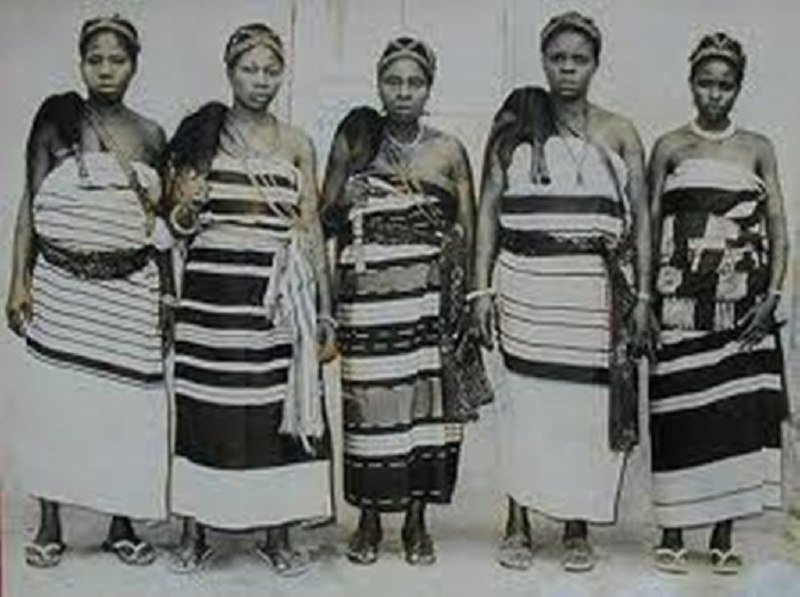Lady Gladys Ada Ukeje, an Igbo woman, Anambrarian, is the daughter of Mr. L. O Ukeje. Upon her father’s demise in Lagos in 1981, her stepbrother and her father’s wife disinherited her from all her father’s properties. Sadly, her father didn’t leave a will and her mother’s justification rested on the Igbo native law and customs. Unable to contain the dissatisfaction, Lady Gladys headed for the Lagos State High Court. This led to the chain of events that changed the history on Igbo women and inheritance, as we know it. Or new it.
Ada, Ulu, Agbogho, Nne
These are names used to describe daughters in Igboland. They are treasured assets in pre-colonial Igbo land. This is largely tied to the anticipation that they would be married someday and bring good fortune to the family either via the bride price and/or rich inlaws.
Igbo Custom, Inheritance And The Female Child
An Igbo daughter is a homemaker, she is cultured to take care of the feeding in the absence of her mother, she is raised to take responsibility for the day to day running of the home. In a case where a man has a large compound, his Ada serves as the unofficial chief of staff seeing to the maintenance and full functioning of the home.
Postcolonial Igbo families send their daughters to school; they have equal academic opportunities with the boys in some families but for some, when finances are tight, the daughter is made to step down her ambition for the male child(ren).

The daughters in the majority of these families are an asset, they are expected to take care of their father and mother in their old age. The daughters while growing up are also domestic assets in that they take charge of building the home and running its day to day activities.
Ultimately, a daughter’s anticipated marriage is always in view and this is one of the causes of female disinheritance in Nigeria debate.
Female Inheritance: Supreme Court, Igbo Culture In Head-On Collision
Despite the huge roles and expectation placed on her, Igbo daughters are disenfranchised from family inheritance. No matter how long she cleans the house, or manages the home, it can never belong to her. “Nwanyi bu ama onye ozo” (a girl child belongs to another family), they say.
Why women do not have inheritances in Igbo land
As pointed above, a girl child, according to traditional belief, belongs to another family. She will be married off soon, this disenfranchises her from having inheritance in the family.
A daughter is not expected to come back from her matrimonial home to “struggle” for inheritance with her brothers. In the first place, it should not have been a struggle if, like the Yoruba tribe, inheritance is given to the wife/wives who further share it amongst their children regardless of gender.
Some Igbo families give inheritance to their daughters based on various scales, her influence, her managerial abilities, how impoverished she is and needs aid among others factors But it is not usually anything major.
Supreme court’s ruling
The above reasons for disinheriting a female child did not provide any tangible bearing in the court of law. After a high court ruling, an appeal and subsequently a higher court’s adjudication, the Supreme Court in late August 2020 upheld the right of female children to inherit property from their fathers, a ruling that has shaken traditional, male-only inheritance in Igboland and other ethnic groups.
Angry Lady Allegedly Sets Her Siblings Ablaze Over Inheritance
“No matter the circumstances of the birth of a female child, such a child is entitled to an inheritance from her late father’s estate,” the court ruled.
Is the ruling obtainable?
Anaedo online correspondents did a brief survey to ascertain the efficacy of the judgement and we discovered that Igbo families are yet to adopt the judgement especially those residing in rural areas.
A large majority of these women are afraid to speak up or claim their rights.
Those in urban settlement and those who are exposed face backlash from disgruntled family members which do not necessarily translate to success.
The most obtainable method is through the will, however, fathers still think it absurd to include their daughters in their will.
How can it be enforced?
Realistically, a family cannot be told how to distribute the inheritance of the dead. A will is the only method of enforcing the judgement if the deceased is in support.
The affected (daughter) can also take up the matter in a law court.
Things A Catholic Priest Would Never Do No Matter The Circumstance
Public education and sensitization are also very important. If the female children are aware of their rights and actively agitate for it, it will bring the message home. The general public, brothers, inlaws, relatives et al have to be educated as well.
The President, Ohanaeze in Anambra State, Chief Damian Okeke-Ogene said “But I must say that not everything can be shared between the male and female children of a man. Ancestral property is exclusive to male children of a man and our daughters know that very well.”
Follow us on Facebook
Post Disclaimer
The opinions, beliefs and viewpoints expressed by the author and forum participants on this website do not necessarily reflect the opinions, beliefs and viewpoints of Anaedo Online or official policies of the Anaedo Online.

